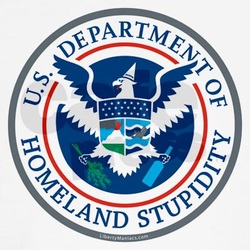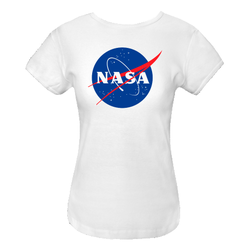
Corporations are not the only zealous defenders of intellectual property rights. Governments diligently protect their trademarks too! Wait a second, you might say. Governments get their own trademarks? I thought governments were in the business of granting trademarks to other people, not acquiring their own. After all, what interest does the government have in designating themselves as the source of particular legislation, regulation, and policies? Well, there might be claims that the government can make regarding affiliation or sponsorship between an official government agency and a person that is using an official government seal on a t-shirt or the like. More on that later. First, lets look at if anyone can register official-looking trademarks.
Let us examine a situation where the government is claiming trademark rights and see where a claim might arise. Cafe Press and Zazzle are two websites that allow users to make a ton of tchotchke items with artwork or messages (I often visit the page for laughs because some people post pretty interesting stuff on there, like t-shirts and coffee mugs with Leslie the camel saying “its hump day”). One user decided to post products with parodied U.S. Department of Homeland Security and National Security Agency logos with the modified department name of “Department of Homeland Stupidity”, among other modifications. The Justice Department of Justice didn’t like this so much and they sent cease and desist letters to Zazzle asking them to remove the infringing articles.
Dan McCall, the owner of Zazzle.com, in a not entirely uncommon move (at least these days) fired back with his own lawsuit against the Justice Department claiming that the parodied logos are protectable free speech (namely, fair use of trademarks). According to the website Judicial Watch,:
McCall says his images make fair use of the NSA and DHS seals to “identify federal government agencies as the subject of criticism.” Therefore, its unconstitutional for the government to forbid him from displaying and selling his parodies to “customers who want to display the items to express their own criticism of NSA and DHS,” according to his complaint.
Furthermore, McCall is not mutilating or altering the agency seals, but rather using them in a parodic form that doesn’t create any likelihood of confusion about the source or sponsorship of the material. No reasonable viewer is likely to believe that any of the materials [are] affiliated with or sponsored by the DHS or the NSA, the complaint says. “Nor were the seals affixed to the items to be sold with any fraudulent intent.
But government agencies themselves are prohibited from securing trademark registrations for these seals, at least under 2(b) and according to the recent federal court decisions in the Houston and D.C. Municipal Seals trademark cases. Governments are not “special” in that they are not unlike ordinary trademark applicants. The language of the trademark statute is clear: no applicant can register an “insignia of the United States or of any State or municipality”. Although the parties in both the Houston and D.C. cases were municipalities, there is no reason to believe that the same reasoning wouldn’t apply to an attempt of a federal agency to register their seals or insignia.
Does this leave the government high and dry in preventing people on Zazzle from making trinkets that bear parodied insignia? Well I guess that depends on whether the government can claim any kind of trademark rights at all, given that they are not allowed to register the trademarks. The government could argue that they have obtained common law rights to the seals because they were using them. After all, 15 U.S.C. § 1052 only prohibits the registration of official insignia, not their use as trademarks at all. No language in federal trademark statutes appears to prohibit official insignia from acquiring common law rights.
If the government can accrue common law trademark rights in official seals and insignia, then they would have the same claims to assert against an infringer that a private-sector owner could assert. So the government, as a trademark owner, could argue that the unauthorized use of a seal by another person (say on t-shirts and coffee mugs) could cause consumer confusion as to the relationship between the maker of the t-shirts and the government. The government does restrict use of some official insignia, it just doesn’t use the trademark statutes (or even a claim to trademark rights) to justify their rights. Consider this directive from NASA:
“Nasa material may not be used to state or imply the endorsement by NASA or by any NASA employee of a commercial product, service, or activity, or used in any manner that might mislead”

So governments appear to be asserting some kind of quasi-trademark right in their seals and insignia. But government (just like trademark owners) are not entitled to an absolute right to prohibit all uses of official insignia because not all uses are likely to confuse the viewing audience as to the affiliation between the user of the mark and the governmental agency that it is connected to. If the government seals are not protected by trademark laws but are instead protected by administrative rules and directives, such directives would have to respect first amendment rights. If a directive impairs speech in some way, the government would have to do some pretty heavy lifting to demonstrate that the restriction is constitutional.
In the case of parodies and the alteration of official seals for the purpose of satire, do general directives like “seals cannot be used for commercial or political purposes” and “imitations or deceptively-similar images of the seal are prohibited from use” really pass muster? If the government’s goal is to prevent confusion between a copied seal and the agency itself, is a prohibition of all types of uses (including parody where, arguably, there is no danger of confusion on the part of the viewing audience) justifiable?
We will take these questions up in Part Deux: Sovereign Immunity: How Government Claims To A Super-Duper Trademark Could Be Overblown.


 RSS Feed
RSS Feed